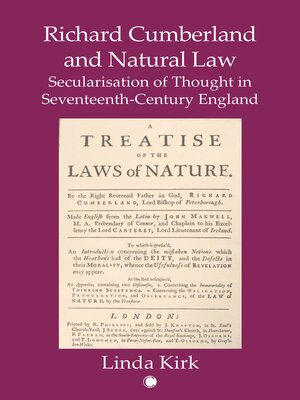Richard Cumberland and Natural Law
ebook ∣ Secularisation of Thought in Seventeenth-Century England
By Linda Kirk

Sign up to save your library
With an OverDrive account, you can save your favorite libraries for at-a-glance information about availability. Find out more about OverDrive accounts.
Find this title in Libby, the library reading app by OverDrive.



Search for a digital library with this title
Title found at these libraries:
| Library Name | Distance |
|---|---|
| Loading... |
No study in the history of seventeenth century thought is completed without some mention of Richard Cumberland, one of the many writers who aimed to refute Hobbes. Cumberland remains on of the few important writers of his century on whom, until now, nothing of substance has been written In the past Cumberland has been somewhat unfairly overshadowed by his fellow anti-Hobbists. His one important work, De Legibus Naturae, first appeared in Latin in 1672 and has never been satisfactorily translated into English. That he published so little in such a prolific age was unusual, but his influence through his work continued to be felt well into the nineteenth century. It is now clear that he went further than both Grotius and Pufendorf in devising a system which prefigured classical utilitarianism, propounding a cosmology based upon the reconciliation of charity and self-interest. In this study, Cumberland is placed for the first time, in his intellectual and historical setting. The author describes Cumberland's life, his work as Bishop of Peterborough, his book and above all his position in the development of natural law theory.







